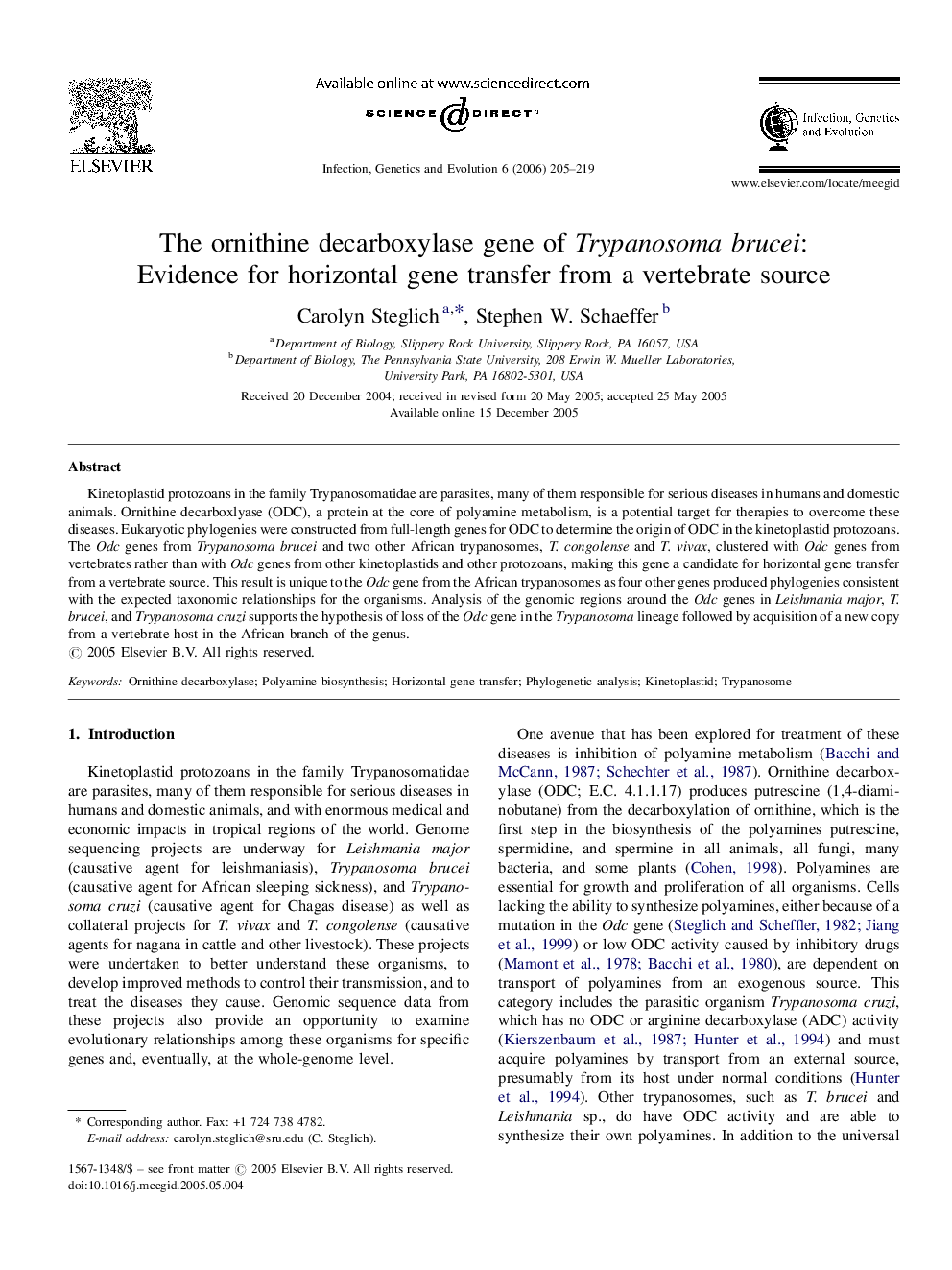| Article ID | Journal | Published Year | Pages | File Type |
|---|---|---|---|---|
| 2823704 | Infection, Genetics and Evolution | 2006 | 15 Pages |
Kinetoplastid protozoans in the family Trypanosomatidae are parasites, many of them responsible for serious diseases in humans and domestic animals. Ornithine decarboxlyase (ODC), a protein at the core of polyamine metabolism, is a potential target for therapies to overcome these diseases. Eukaryotic phylogenies were constructed from full-length genes for ODC to determine the origin of ODC in the kinetoplastid protozoans. The Odc genes from Trypanosoma brucei and two other African trypanosomes, T. congolense and T. vivax, clustered with Odc genes from vertebrates rather than with Odc genes from other kinetoplastids and other protozoans, making this gene a candidate for horizontal gene transfer from a vertebrate source. This result is unique to the Odc gene from the African trypanosomes as four other genes produced phylogenies consistent with the expected taxonomic relationships for the organisms. Analysis of the genomic regions around the Odc genes in Leishmania major, T. brucei, and Trypanosoma cruzi supports the hypothesis of loss of the Odc gene in the Trypanosoma lineage followed by acquisition of a new copy from a vertebrate host in the African branch of the genus.
